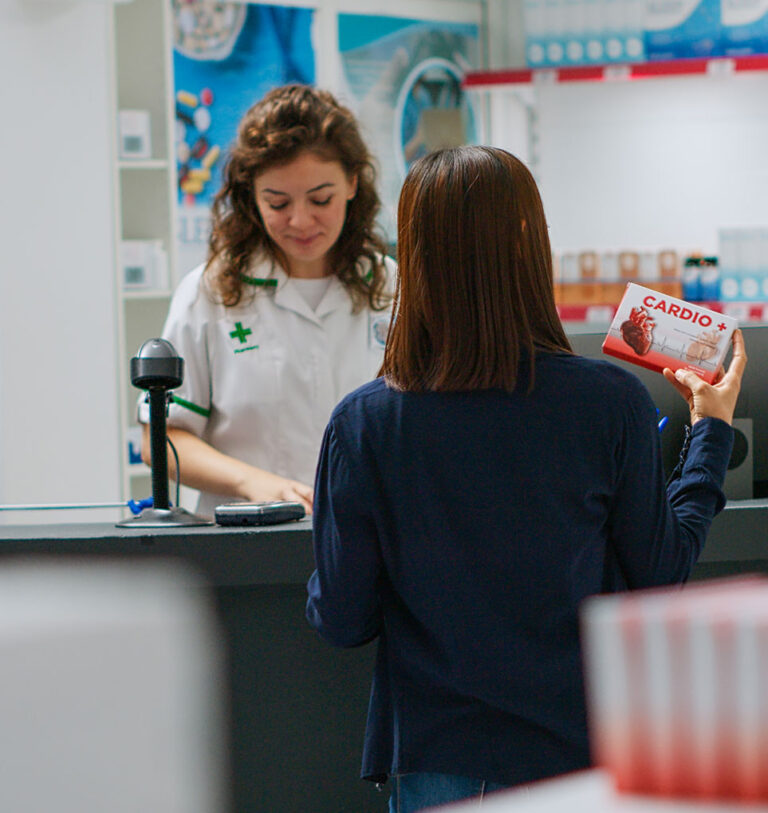Medication Management
We understand the importance of optimised medication management for our clients. Our comprehensive review process with each patient addresses any medication issues and recommendations are made to address and rectify these issues. Our primary goal is to ensure patients are on the right medication, dose, formulation, and combination to achieve the best possible health outcomes.
Accreditations and Partners
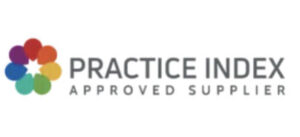

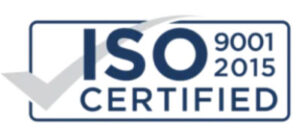
Ensuring the right medicine for the right patient at the right time
Its important that we help support activities which promote safe and effective medicines management
- Medicines optimisation from all providers
- Reducing errors
- Reduce medicine wastage
- Medicines Reconciliation
Medication safety management in general practice
Medication Management Support for GP Practice
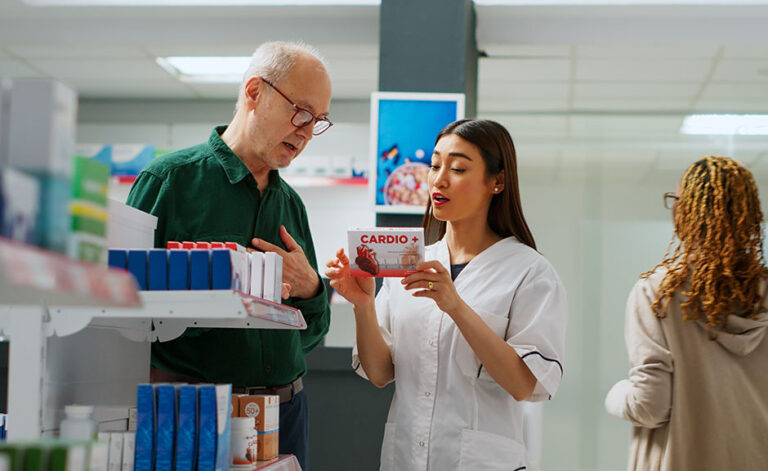
Background
Client: GP Practice (Name Withheld)
Service Provider: National Clinical Services
Project Duration: Initial 6 months, extended to 1 year
Objective: Clear medication management backlog and streamline prescription processes
A GP practice was struggling to manage its medication workload due to a backlog and staff shortages. This led to delays in processing acute and repeat prescriptions and handling important tasks such as hospital discharge summaries. To resolve these issues, the practice enlisted the support of National Clinical Services (NCS).

Approach
NCS provided a dedicated full-time (WTE) pharmacist prescriber who worked remotely, focusing on clearing the backlog of acute and repeat prescriptions. The pharmacist also supported the practice by managing other essential tasks, including medication reviews and actioning hospital discharge summaries.
Key responsibilities included:
- Acute and Repeat Prescriptions: The pharmacist efficiently processed all outstanding acute and repeat prescription requests, ensuring patients received their medications promptly.
- Hospital Discharges: Upon receiving discharge summaries from hospitals, the pharmacist acted swiftly to reconcile medications, ensuring changes were implemented accurately to improve patient safety.
- Ongoing Medication Management: In addition to clearing the backlog, the pharmacist reviewed patient medications, making recommendations to optimise treatment, including dosage adjustments, switching formulations, and managing drug interactions.
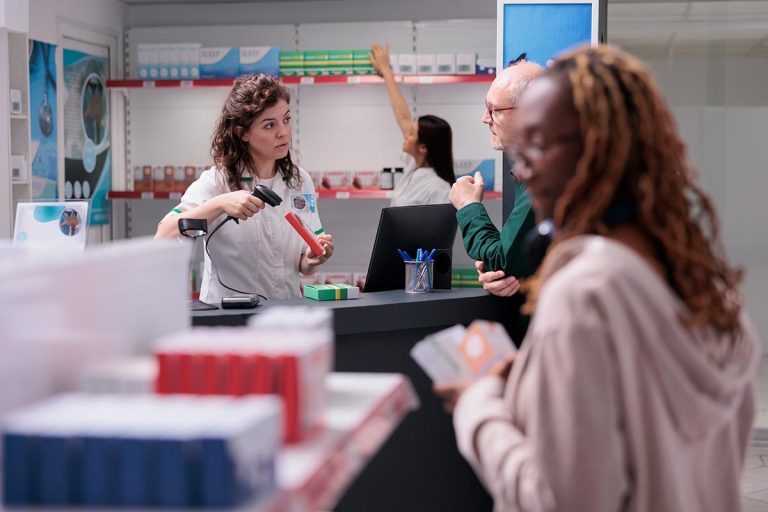
Results
Backlog Cleared: Within the initial 6-month period, the pharmacist cleared all outstanding acute and repeat prescriptions, restoring efficiency to the practice’s medication processes.
Improved Medication Management: The pharmacist’s expertise ensured that patients were prescribed the correct medications at the right doses, improving patient outcomes and adherence.
Extended Service: Due to the success of the initial 6-month project, the practice extended the partnership with NCS for a further year, recognising the value of having a remote pharmacist to maintain smooth medication management and provide ongoing support.

Conclusion
National Clinical Services provided critical support to a GP practice struggling with medication management by deploying a full-time pharmacist prescriber. The pharmacist not only cleared the backlog but also enhanced the overall quality of medication management. The practice benefited greatly from this service, resulting in improved efficiency, patient safety, and continuity of care, leading to the extension of the service beyond the original timeframe.
-
ICBs
-
PCNs
-
Pharmacists
Don’t just take our word for it…
“As Practice Manager, I want to express my gratitude to Yasin Patel for his invaluable support in establishing our remote Minor Illnesses Clinic. His professional service has been instrumental in addressing staffing challenges and providing additional coverage when needed. The clinically proven approach has significantly alleviated pressures on our team. Thank you, Yasin!”
Kerry - Practice Manager
Frequently asked questions
How much ARRS funding can a PCN benefit from?
A PCN is allocated a sum for an entire year based on its weighted population share of the total ARRS funding.
Although PCNs are able to claim up to this maximum sum each year, an underspend has commonly been reported.
From 1 October 2024, PCNs will be able to claim up to £65,838 (annual equivalent) per ARRS clinical pharmacist working at band 7-8a.
In outer London, this rises to £73,189, and £76,313 in inner London.
How much is the ARRS funding?
Funding for the new ARRS GP roles has been calculated at £1.303 multiplied by the PCN’s weighted population as of the start of 2024.
According to NHS England, the overall value of the ARRS in 2023/24 is in excess of £1billion.
The role of ARRS in primary care
According to NHS England, The ARRS scheme was introduced as a key part of the government’s manifesto commitment to improve access to general practice.
Through the scheme, primary care networks (PCNs) can claim reimbursement for the salaries (and some on costs) of 18 new roles within the multidisciplinary team selected to meet the needs of the local population.
By expanding general practice capacity, the scheme improves patient access, supports the delivery of new services, and widens the range of primary care services available.
How many ARRS roles are available?
There are around 18 roles available, including:
- Clinical Pharmacist
- Pharmacy Technician
- Health and Well-being Coach
- Dietician
- Podiatrist
- Paramedic
- Adult Mental Health Practitioner
- Children and Young People’s Mental Health Practitioner
- Nursing Associate
- Trainee Nursing Associate
- Occupational Therapist
- First-contact Physiotherapist
- Care Co-ordinator
- Physician Associate
- Social Prescribing Link Worker
- General Practice Assistant
- Digital and Transformation Lead
- Advanced Practitioner
What does the ARRS stand for in the NCS?
ARRS stands for The Additional Roles Reimbursement Scheme.
In August 2024, the government announced that £82 million of additional funding from the Department of Health and Social care budget would be used to enable changes to the ARRS scheme, which means that in 2024/25 it can be used to recruit newly qualified GPs into the NHS and practices will be reimbursed for their salary costs. However, this changes the nature of the scheme as it had been focused on ‘additional roles’ that broaden the skill mix and range of services available to patients in general practice rather than funding core GP roles.
Who are National Clinical Services and how can we help assist PCN’s with ARRS?
How does the application process for ARRS funding work?
Who is eligible for ARRS funding?
What is a PCN?
PCN stands for Primary Care Network.
A Primary Care Network (PCN) is a group of GP practices that collaborate closely with other health and social care staff and organisations to deliver integrated services to their local community.
This model enhances the ability to provide comprehensive, coordinated care tailored to the specific needs of the population they serve.
Across England, there are around 1,250 PCNs covering populations of, on average, 50,000 people – although this varies significantly, with more than a third of PCNs covering more than 50,000 people. In some cases, a single practice that has met the size requirements of a network can also function as a network.
Get in Touch
Choose a time that works best for you. Once you are done setting up a time, please check your email for your confirmation.
